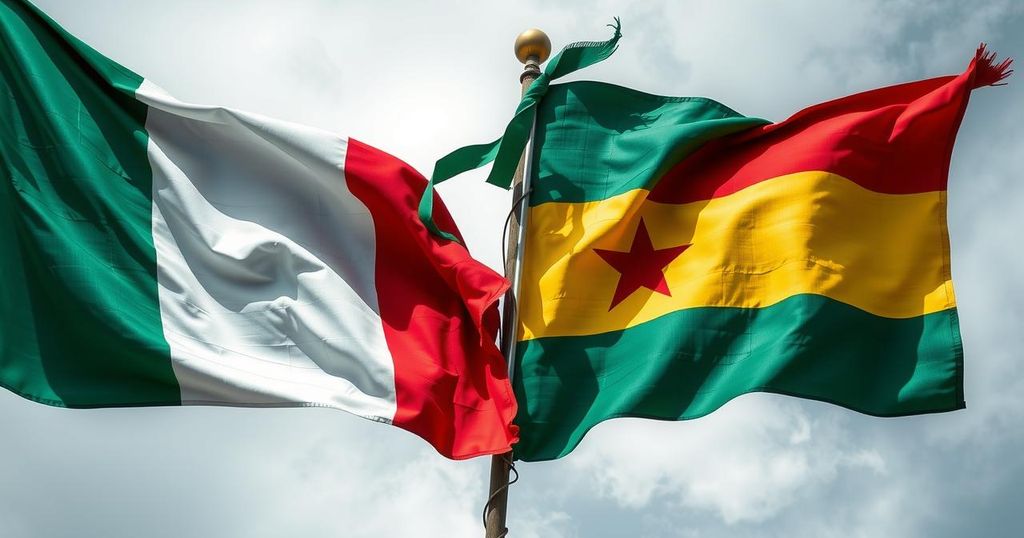Contrasting Electoral Landscapes: Lessons from Ghana and Nigeria

Ghana’s 2024 elections contrasted sharply with Nigeria’s electoral experiences, showcasing Ghana’s commitment to a peaceful, democratic process, with high voter turnout and early concession by candidates. Nigeria, on the other hand, faces ongoing electoral malfeasance and public disillusionment, evidenced by low voter participation and a lack of trust in the electoral system.
The recent electoral dynamics between Nigeria and Ghana exhibit a stark contrast in political maturity and electoral integrity. In Ghana, the December 2024 elections demonstrated a vibrant democratic engagement, with former President John Mahama of the National Democratic Congress achieving a resounding victory with 56.55% of the vote. The runner-up, Vice-President Mahamudu Bawumia, garnered 41.61%, and noteworthy is his early concession during the vote counting, a move that highlighted his statesmanship and quelled potential post-election tensions.
In stark opposition, Nigeria struggles with entrenched electoral challenges, including widespread vote-buying and distrust in the electoral process. The Electoral Commission of Nigeria (INEC) has faced significant scrutiny and criticism over its handling of elections, which have often resulted in low voter turnout and skepticism regarding the legitimacy of the electoral outcomes. The 2023 presidential elections, for instance, were marred by allegations of malfeasance, leading to a voter turnout of only 26.7%. This illustrates a concerning pattern of electoral disillusionment among the Nigerian populace.
While Ghana’s elections proceeded smoothly and without the typical violence seen in Nigeria, the latter’s political elite has fostered an environment of distrust and division. Voter engagement in Ghana reflects a commitment to democracy, as evidenced by a 60.9% turnout, illustrating the populace’s confidence in the electoral process. Ghana’s adherence to democratic principles has earned commendations from international observers, contrasting sharply with the disheartening evaluations of Nigeria’s electoral integrity.
The disparities in electoral governance between the two countries underscore the importance of institutional strength and public engagement in sustaining democracy. Ghana’s successful democratic practices should serve as a template for Nigeria to aspire towards, emphasizing the need for credible elections to restore public confidence in its political system.
The comparison of electoral processes between Nigeria and Ghana reveals significant differences stemming from their historical political developments. Both countries achieved independence in the early 1960s, yet Ghana’s democratic governance has flourished, promoting competitive electoral practices. Conversely, Nigeria has grappled with troubled electoral histories characterized by vote manipulation, violence, and a lack of trust in governance structures, which detracts from democratic resilience. Ghana’s recent election, marked by peaceful conduct and high voter participation, stands in sharp contrast to Nigeria’s recent electoral experiences, which have prompted considerable public disillusionment and calls for reform.
In summary, the electoral contexts of Ghana and Nigeria reflect divergent paths in democratic practice and civic engagement. Ghana’s recent elections demonstrate a successful and credible electoral process bolstered by early concession from candidates and active public participation. Conversely, Nigeria faces persistent challenges in maintaining electoral integrity, leading to low voter turnout and public distrust. Ghana’s example presents valuable lessons for Nigeria to establish effective democratic processes and enhance the legitimacy of its political institutions.
Original Source: punchng.com







